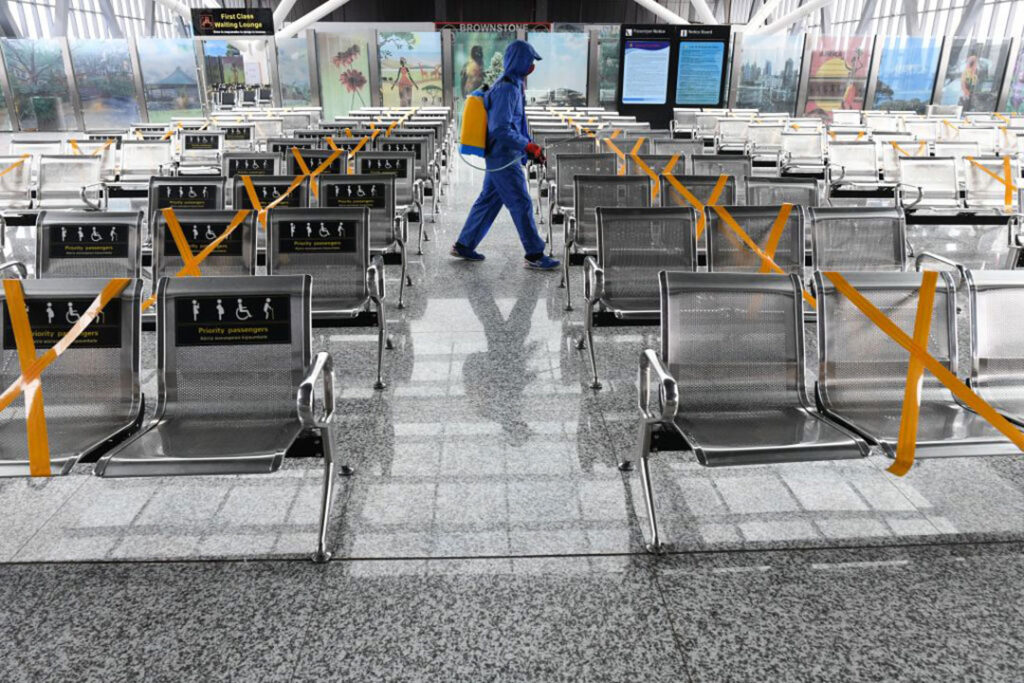ADF STAFF
One of the crown jewels of China’s vast Belt and Road Initiative (BRI) has lost its luster.
At a cost of $3.6 billion, the Standard Gauge Railway (SGR) is Kenya’s most expensive infrastructure project since the nation gained independence in 1963. Opened in 2017, the railway connects the port of Mombasa to the capital, Nairobi, with an extension to Naivasha completed in 2019 for an additional $1.5 billion.
Lawmakers in Kenya now say significant operational losses coupled with debt owed to Chinese banks are crippling an economy that already was wrestling with a global downturn caused by COVID-19.
Members of Parliament’s Transport Committee released a report that calls for almost 50% in reductions to operating costs and renegotiation of the $4.5 billion owed to China for financing the railway’s construction.
“The government should initiate the process of renegotiating the loan terms of the SGR with the lender due to the prevailing economic distress occasioned by the global pandemic,” said the report given to Parliament on September 23.
The report cites COVID-19 as the primary reason for renegotiation. The deadly virus, discovered late last year in Wuhan, China, has killed more than 1 million people and infected more than 35.5 million worldwide.
In the first four months of the year, lockdowns hit the railway hard, cutting in half its number of cargo trains.
Kenya pays $1 million a month to the SGR’s operator, China’s Africa Star Railway Operation Company, but has failed to make those payments for the past 21 months. With foreign debt of about $60 billion, which is 61% of its gross domestic product, Kenya was in danger of falling into a debt trap before the pandemic.
“I think it’s early stages, but whatever debt leverage China had over countries is going to increase,” said Sam Parker, co-author of a Harvard University report on debt-trap diplomacy, to The Guardian. “Whatever bad consequences were going to happen as a result of being unable to repay China, I think the timeline could be severely accelerated.”
In Kenya, the railway’s Madaraka Express passenger trains run at near capacity. It is commercial freighters that cause concern.
State-owned Kenya Railways tried reducing cargo fees. Then the government in June mandated that all cargo to Nairobi go through the railway before reversing the decision a month later under intense pressure from freight companies that warned they would lose hundreds of trucking jobs.
The railway’s viability remains in serious doubt. The original contract calls for the Kenya Ports Authority, the guarantor of the loan, to provide 1 million tons of cargo per year to the railway, rising to 6 million by 2024. The authority reported 4 million tons of railway cargo in 2018.
Darker days may lie ahead as the country grapples with the possibility of Chinese banks taking the Port of Mombasa as collateral.
That was the message from Kimani Ichung’wa, chairman of Kenya’s Parliamentary Budget Committee, who first called for renegotiations in June.
“There are some investment decisions we have taken that are not in the best interest of the country, so it is time we start reevaluating them and renegotiating with people who gave us the money so that we are able to survive,” he told The EastAfrican. “We must renegotiate our debts with the Chinese; otherwise, we are headed for a very difficult time.
“It is very easy to resolve this issue of loan repayment by just sitting down with the Chinese and telling them we made a mistake. We owe you all this money, but you are also demanding so much from us in terms of repayment.
“Look, our economy is beaten, and we are not able to pay. We are not saying the debt is not there, but we simply want to renegotiate what we owe you and the terms of payment.”

